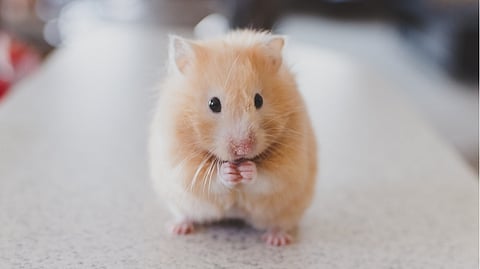

CHENNAI: The Tamil Nadu government is stepping up its efforts to stop the indiscriminate use of glue traps which subject small animals to a slow and painful death.
In a letter, the additional chief secretary has directed the commissioner of animal husbandry and veterinary services and the state's district collectors to take immediate steps to implement advisories issued by the Animal Welfare Board of India to prohibit the manufacture, sale, and use of cruel glue traps.
Issued in July, it also directs the officials to communicate with law enforcement authorities to conduct special drives and seize glue traps from manufacturers and traders and requests that they issue public-awareness notices about the ban on the use of glue traps in the state and about humane methods of rodent control. The letter also demanded an urgent action taken report.
The state government's action comes in response to an appeal by People for the Ethical Treatment of Animals (PETA) India, the animal rights organisation.
"The manufacturers and sellers of glue traps sentence small animals to hideously slow and painful deaths and can turn buyers into lawbreakers," says PETA India Advocacy Associate Farhat Ul Ain. "PETA India commends Tamil Nadu for taking steps to protect animals, no matter how small, and for setting an example for the entire country to follow."
PETA India noted in its appeal that the use of glue traps is a punishable offence under Section 11 of the Prevention of Cruelty to Animals Act, 1960. Usually made of plastic trays or sheets of cardboard covered with strong glue, they're indiscriminate killers, often catching non-target animals - including birds, squirrels, reptiles, and frogs. This is in apparent violation of the Wild Life (Protection) Act, 1972, which prohibits the "hunting" of protected indigenous species.
Mice, rats, and other animals caught in these traps can die of hunger, dehydration, or exposure after days of prolonged suffering. Others may suffocate when their noses and mouths become stuck in the glue, while some even chew through their limbs in a desperate bid for freedom and die from blood loss. Those found alive may be thrown away along with the trap or may face an even more traumatic death, such as by bludgeoning or drowning.
The animal rights body notes that the best way to control rodent populations is to make the area unattractive or inaccessible to them. Eliminate food sources by keeping surfaces and floors clean, and store food in chew-proof containers. Seal trash cans, and use ammonia-soaked cotton balls or rags to drive rodents away as they hate the smell.
Rodents can also be removed using humane cage traps but must be released near where they were found - animals relocated outside their natural territory struggle to find adequate food, water, and shelter and can die as a result, PETA India noted.
Visit news.dtnext.in to explore our interactive epaper!
Download the DT Next app for more exciting features!
Click here for iOS
Click here for Android